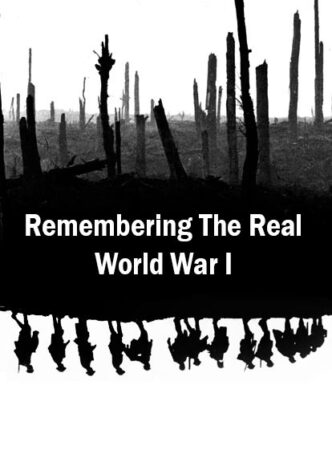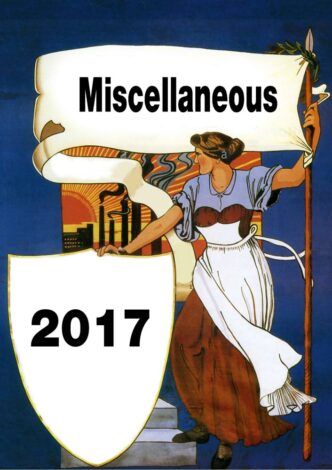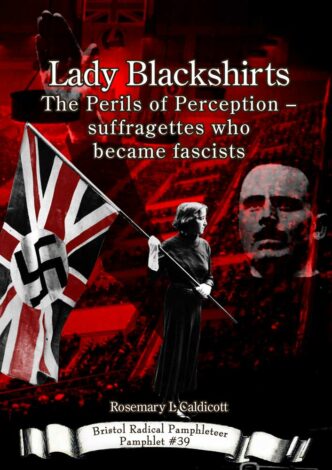 Not A BRHG Event
Not A BRHG Event
Clevedon Civic Society, St Andrew’s Church Centre, Old Church Road, Clevedon, BS21 7UE Rosemary Caldicott, author of The Life and Death of Hannah Wiltshire: A Case Study of Bedminster Union Workhouse tells the true story of how in 1850s the local community pulled together to uncover murder in the Flax Bourton workhouse. Roger Ball, co-author of 100 Fishponds Rd: Life and death in a Victorian workhouse explains how a team of local researchers revealed that more than 4,000 men, women and children, […]
This BBC series uses original research in German military archives to interrogate long-standing assumptions and prevailing myths about the what happened in the most iconic battle of the First World War. The final programme, End Game questions the broadly accepted idea that the Somme campaign was the ‘decisive victory’, British Commander in Chief Douglas Haig claimed it to be. To do this, it examines the revealingly different military cultures of the British and Germany armies, not just in terms […]
Bristol was rocked by two major strike waves in the late 19th Century, the first (1889-90) marked the emergence of ‘new unionism’ representing male and (significantly) female unskilled and semi-skilled labourers. Victory in these strikes improved pay and conditions for workers but led to an organised counter-offensive by employers in the autumn of 1892. The response of workers was a second strike wave which united miners, dockers and female confectionary workers, culminating in 'Black Friday' on […]
 New WEA Course: History of the Women’s Movement (1968–1988)
New WEA Course: History of the Women’s Movement (1968–1988)
Dr Debi Withers is running a new WEA course in Bristol entitled History of the Women’s Movement (1968 – 1988): An introduction. Details below:
This film showing kicks off a series of events this year from the Remembering the Real World War One group looking at WW1 from a German historical perspective. Film Summary: In the run-up to the outbreak of WW1 in August 1914, the peace and quiet of a small Prussian village is upset by a series of disturbing events that seem to involve local children. As the villagers vacillate between exposing and concealing the perpetrators of the crimes, the wider question of culpability becomes […]
Tonight is an evening to find out more about the situation in Northern Syria and the region that the Kurdish groups and those that support them call Rojava. We are going to show two films and have some speakers discussing and facilitating a discussion about supporting the situation in Rojava and what we can do in Bristol and the wider UK to raise awareness and support the struggle for an autonomous and secular region in Northern Syria. We will try and encourage a space for all those interested […]
The following statement by BRHG historians was published in the Bristol Post last week in response to Councillor Richard Eddy's article the week before entitled: Prominent Tory: Renaming Bristol's Colston Hall 'panders to tiny minority'. Almost a century ago in 1920 the Reverend H. J. Wilkins of Westbury-on Trym penned a biography of Edward Colston which began to expose the troubling history surrounding Bristol’s so-called ‘moral saint’ and ‘great philanthropist’. Wilkins was astounded at the […]
 Not A BRHG Event
Not A BRHG Event
Quaker Meeting House, 126 Hampton Road, Redland, Bristol BS6 6JE A free event on women and conscientious objection to military service. Note: Registration is required for this event, details here. Speakers will include:- Professor Lois Bibbings, University of Bristol, author of Telling Tales About Men: Conceptions of Conscientious Objectors to Military Service During the First World War (Manchester: Manchester University Press, 2009) will look at how World War 1 Conscientious Objectors were […]
During the 1930s a small group of ultra-nationalistic women, who considered themselves feminists, joined Oswald Mosley’s British Union of Fascists. Surprisingly some of these women were former high ranking members of the suffragette movement. Over 50 regional branches of the British Union of Fascists, with Women’s Sections, opened across the United Kingdom. The branches were established to promote and normalise the ultra-right and to position fascism as an acceptable political choice within […]
Edward Carpenter (1844-1929) was one of the most progressive thinkers, writers and activists of the late19th and early 20th century. He was an early supporter of the Bristol Socialist Society and paid regular visits to the city. Now remembered and celebrated mostly for his support for libertarian socialism and gay politics, he also took up ‘green’ causes. Carpenter’s campaigns for smoke abatement have rarely been revisited. His serialised essay on the subject, The Smoke-Dragon and How to Destroy […]
 Not A BRHG Event
Not A BRHG Event




